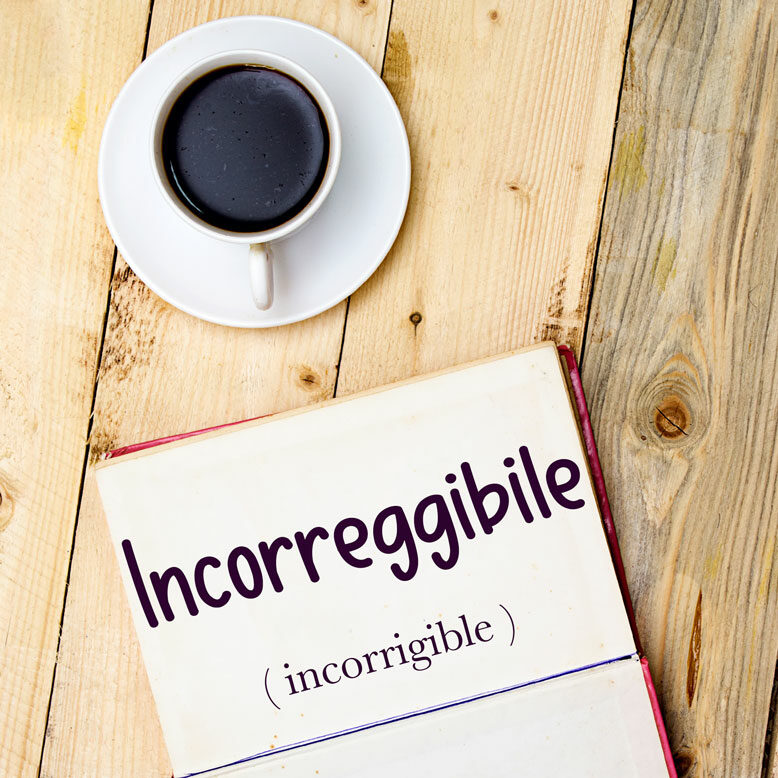Today, as I was listening to the classic Lucio Battisti hit Ancora Tu on the radio, I was reminded of myself at 23 years old, strolling under the portici (arcades) of Via Roma in Torino, iPod in hand, doggedly trying to memorise the lyrics, and in particular, our word of the day which appears in the chorus:
Sei ancora tu
Purtroppo l’unica
Ancora tu
L’incorreggibile
Ma lasciarti non è possibile
It’s still you
Unfortunately the only one
Still you
The incorrigible one
But leaving you isn’t possible

Incorreggibile, like its English equivalent incorrigible, describes a person who cannot or refuses to be changed, or a personal defect that cannot be reformed.
In the song, Battisti uses incorreggibile as a noun (l’incorreggibile = the incorrigible one) but it is normally used as an adjective. In the singular, the ending remains the same for masculine and feminine subjects, whereas in the plural, it becomes incorreggibili for both genders.
Chi fuma poche sigarette corre meno rischi rispetto ad un fumatore incorreggibile.
Those who smoke only a few cigarettes run less risk than an incorrigible smoker.

In both languages, people use it jokingly to describe a flirtatious individual (cascamorto for a man / civetta for a woman).
Addirittura tre ragazze ti hanno dato il loro numero di telefono stasera? Ma sei un cascamorto incorreggibile!
Three girls gave you their phone number tonight? You really are an incorrigible flirt!
You can also use it to describe an essay, assignment, translation or any other written piece of work that contains so many errors that it cannot be improved even with partial corrections. In this case, the best translation would be beyond correction or impossible to correct.
Questo compito di matematica contiene veramente troppi errori. È praticamente incorreggibile.
This maths assignment really does contain too many errors. It’s practically impossible to correct.
Heather Broster is a graduate with honours in linguistics from the University of Western Ontario. She is an aspiring polyglot, proficient in English and Italian, as well as Japanese, Welsh, and French to varying degrees of fluency. Originally from Toronto, Heather has resided in various countries, notably Italy for a period of six years. Her primary focus lies in the fields of language acquisition, education, and bilingual instruction.


